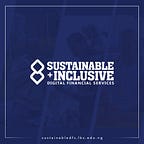Regulatory Enablers of Financial Inclusion
Like most innovations, the existence or absence of an enabling regulatory framework determines the success for digital financial services (DFS) and its inherent possibilities and advantages. In fact, the regulation of DFS can break or make the delivery of digital financial services to excluded populations.
In a CGAP report titled Basic Regulatory Enablers for Digital Financial Services, four regulatory enablers of DFS were highlighted. These enablers constitute the foundation of every thriving DFS market without which financial inclusion campaigns would gain little to negligible success.
In this article, we explore these four enablers and just how effective Nigeria has been in deploying them.
Enabler 1. Nonbank E-Money Issuance.
In most developing countries, high financial exclusion figures are usually a reflection of the dearth of financial service points. This insufficiency stems from the reliance on the traditional bank model which is expensive and unsustainable.
In order to enable greater financial inclusion, the regulator of the financial service industry needs to create a window for non-banks to also provide DFS to customers. So says the report.
In markets where e-money issuance has been restricted to the banking industry, financial inclusion efforts usually struggled. Most regulators realised this which led to them opening up the ecosystem by licensing more providers outside the banking sector. Examples include India’s Payment banks solution.
Thankfully, in Nigeria, the licensing model for DFS providers is open to non-banks. In fact, between 2011 and 2017, more than 20 mobile money licenses have been issued. However, the licensing model specifically excludes mobile network operators from leading such services.
Enabler 2. Use of Agents.
The CGAP report states that by permitting DFS providers — both banks and nonbanks — to use third-party agents, such as micro and small entrepreneurs, to distribute and deliver financial services, the ecosystem is well underway to greater levels of inclusion.
We have written extensively about the use of agents and building out a strong and extensive agent network as a means to bolster our financial inclusion efforts.
In 2013, the Central Bank opened a window for financial institutions to use third-party agents when it introduced the agent banking guidelines as well as the Super Agent framework. However, in spite of this window, Nigeria’s agent network remains underdeveloped. With just under 50,000 agents serving a population of about 95 million adults, it’s easy to easy where the difficulty lies. Thankfully, a plan to rollout a 500,000 strong agent network known as the Shared Agent Network Expansion Facilities (SANEF) was announced earlier this year and the ecosystem eagerly awaits the implementation of such an ambitious project and the attendant benefits.
Enabler 3. Risk-Based Due Diligence (CDD).
The report states that an enabling regulatory environment adopts a proportionate anti-money laundering framework which allows simplified version of CDD for lower-risk accounts and transactions.
The Central Bank has translated this into a tiered KYC system / regime whereby customer accounts are graded on a 3-tier basis, permitting specific transaction limits and thresholds for the respective tiers. Since the inability to produce the appropriate documentation has been an often identified inhibitor to formal inclusion, the relaxed requirements has empowered financial institutions to venture out and onboard even more customers notwithstanding their limited documentation.
There are also several developments in the area of identity management which would reduce friction and aid due diligence procedures. Firstly, a nationwide mandate by the CBN saw the issuing of a bank verification number (BVN) to every banking customer. This number was verifiable across the banking sector and helps to reduce the risks of identity theft, unauthorised access to accounts among a host of other benefits. Secondly, the Nigerian Identity Management Commission (NIMC) has begun building a national identity database with the aim of capturing every Nigerian citizen and issuing them a national identity number (NIN).
Enabler 4. Consumer Protection.
The report identifies adequate checks and balances (consumer protection) as the fourth regulatory enabler which ensures a responsible provision of financial services while engendering trust in the formal system. As a priority, the integrity of the financial services sector needs to be preserved through excellent fraud detection and mitigation measures.
Consumer protection seeks to level the playing field between providers of financial services and consumers. The unbanked are usually subjected to excessively high interest rates on debts and loans, have a limited understanding about financial options and insufficient avenues for redress.
Perhaps the biggest development in consumer protection so far in the ecosystem is the establishment of a consumer protection department within the CBN. In a bid to foster consumer confidence in financial services, this unit is responsible for consumer education as well as customer complaints management. Also, over the years, Nigeria’s banking regulator has released diverse regulatory mechanisms such as guidelines and frameworks with the purpose of guiding the use and operation of different technologies and innovations including USSD, agent banking and super agents among a host of others.
As Ros Grady, Senior Financial Sector Expert at the World Bank, once wrote: Financial consumer protection frameworks, properly designed, implemented and supervised instills trust in consumer products and services of the financial sector. Such frameworks can thus be important enablers for the uptake of financial products and services.”
Based on these enablers, Nigeria and the CBN seem to be on the right track with regards to establishing the necessary environment for DFS to thrive. Nonetheless, we are yet to witness the impact with respect to financial inclusion. Beyond these, we need more positive and impacting strategies and solutions that holistically address financial inclusion. Could one such strategy include telco participation like in other markets? In addition to adding these actors as solutions providers, this could also expand the agent banking network.
In what other ways can these enablers be explored and engaged to further drive financial inclusion?
